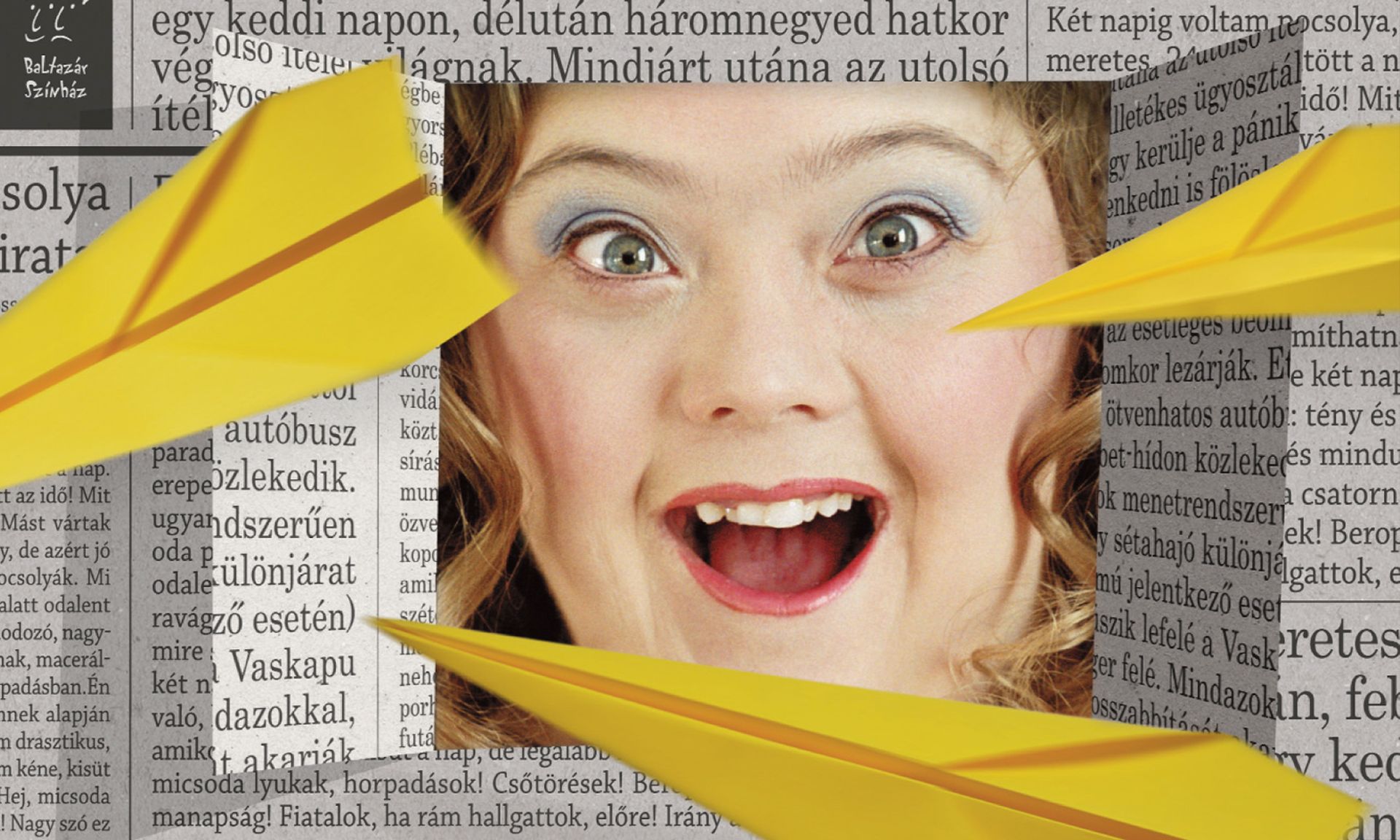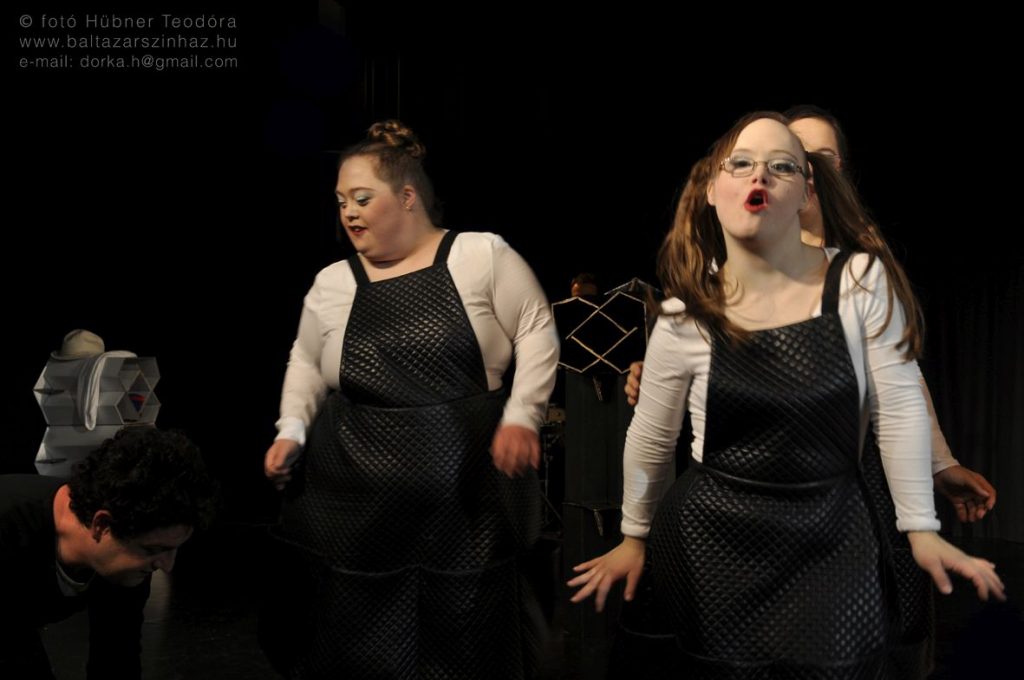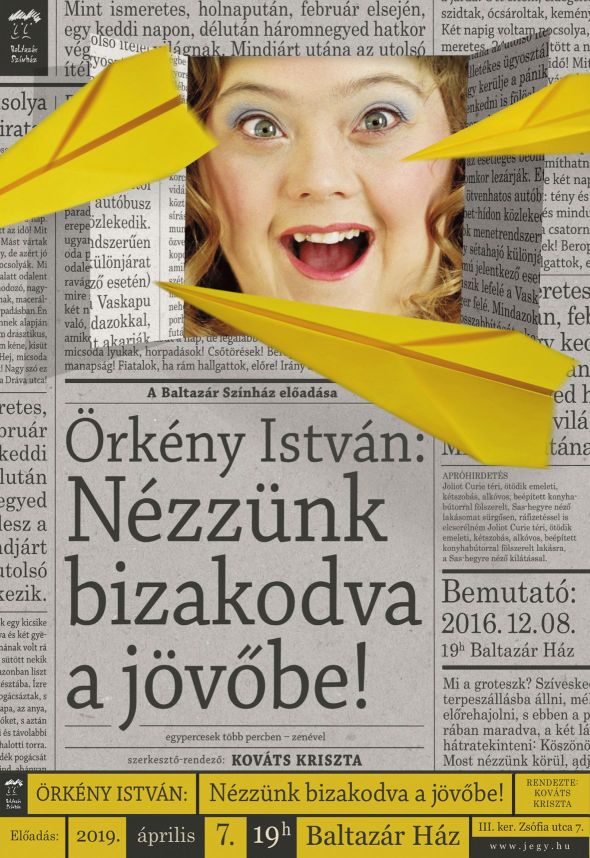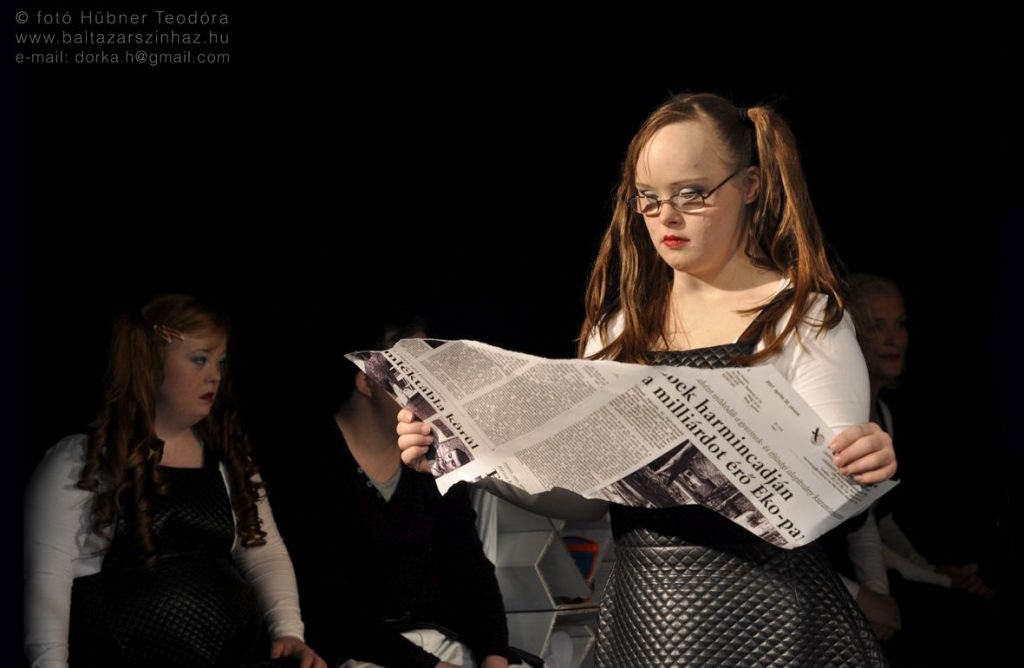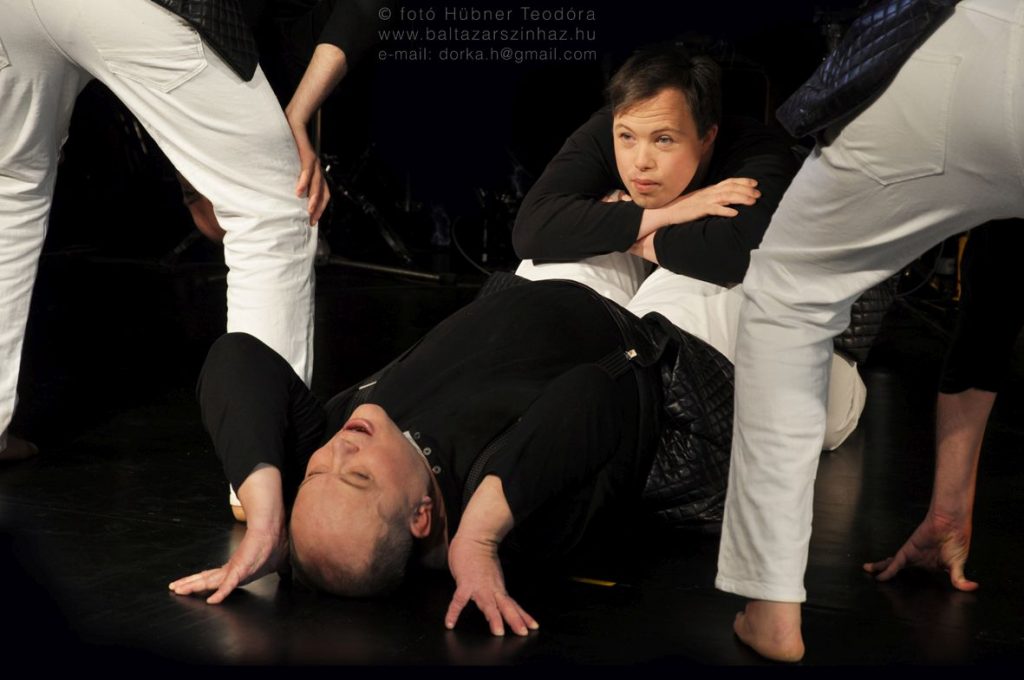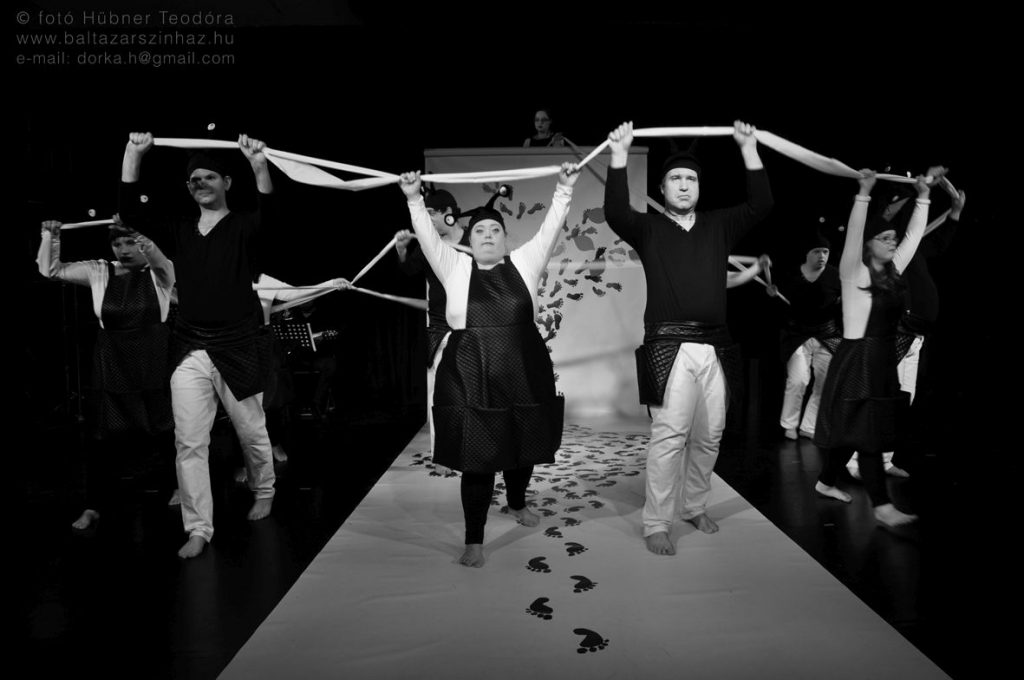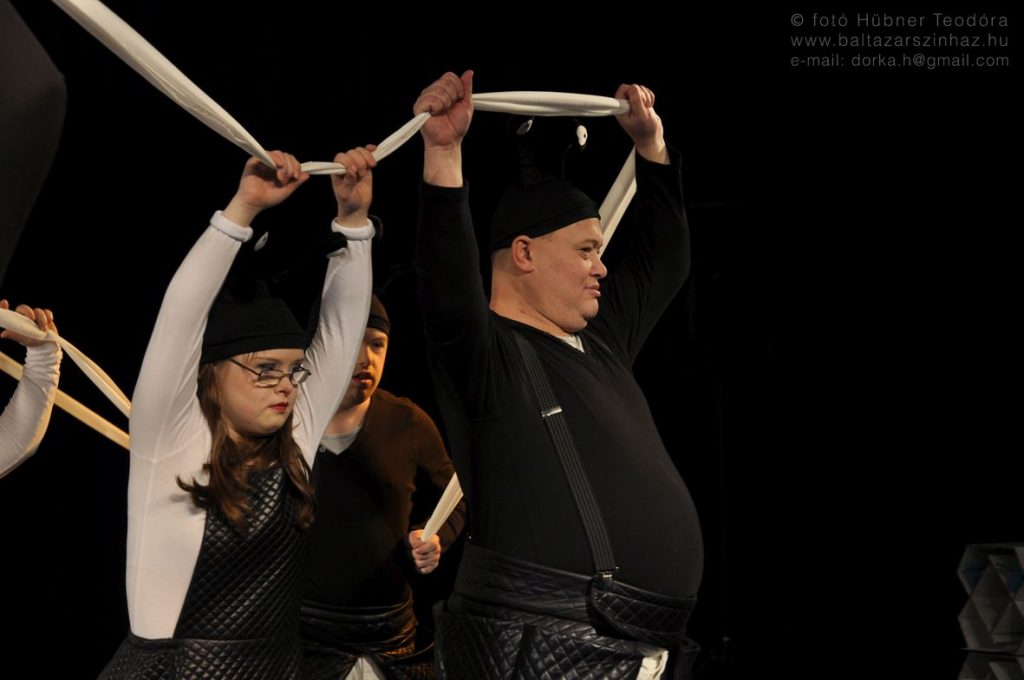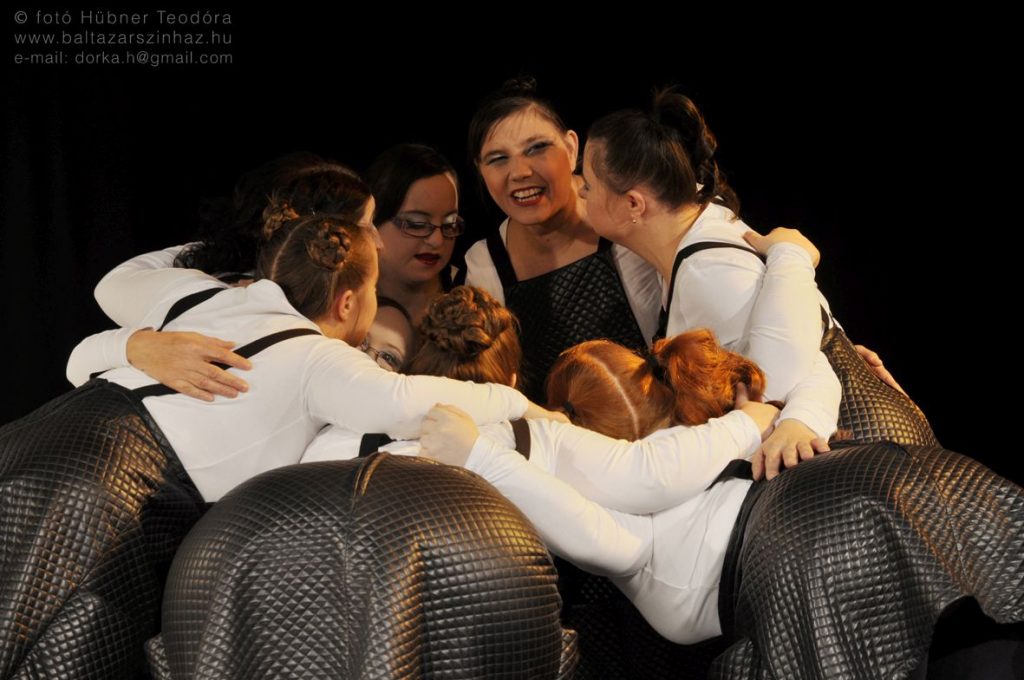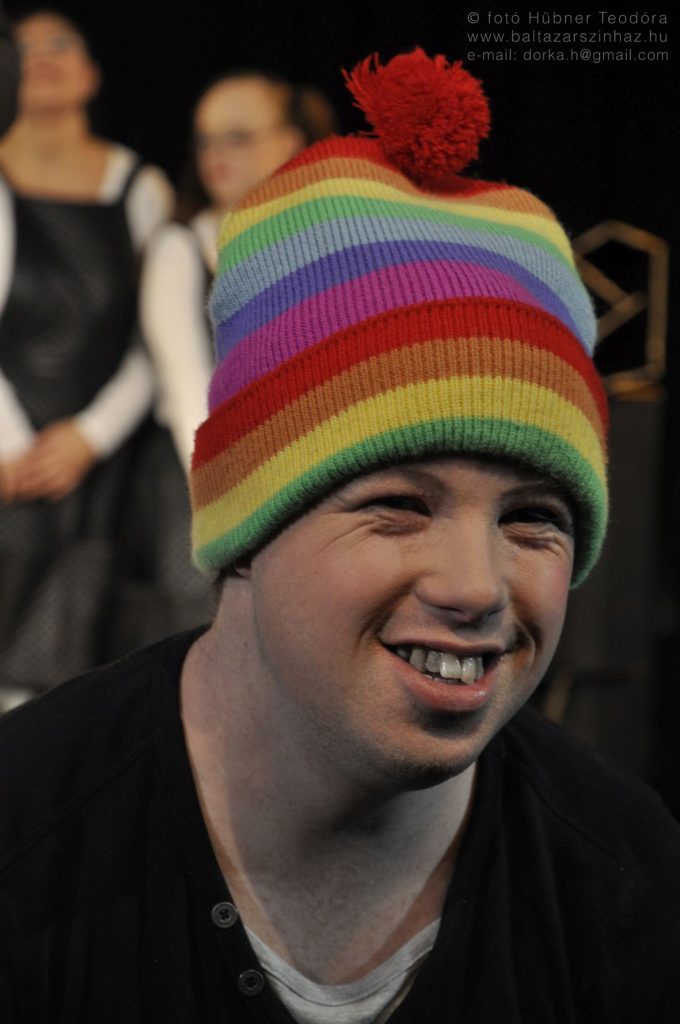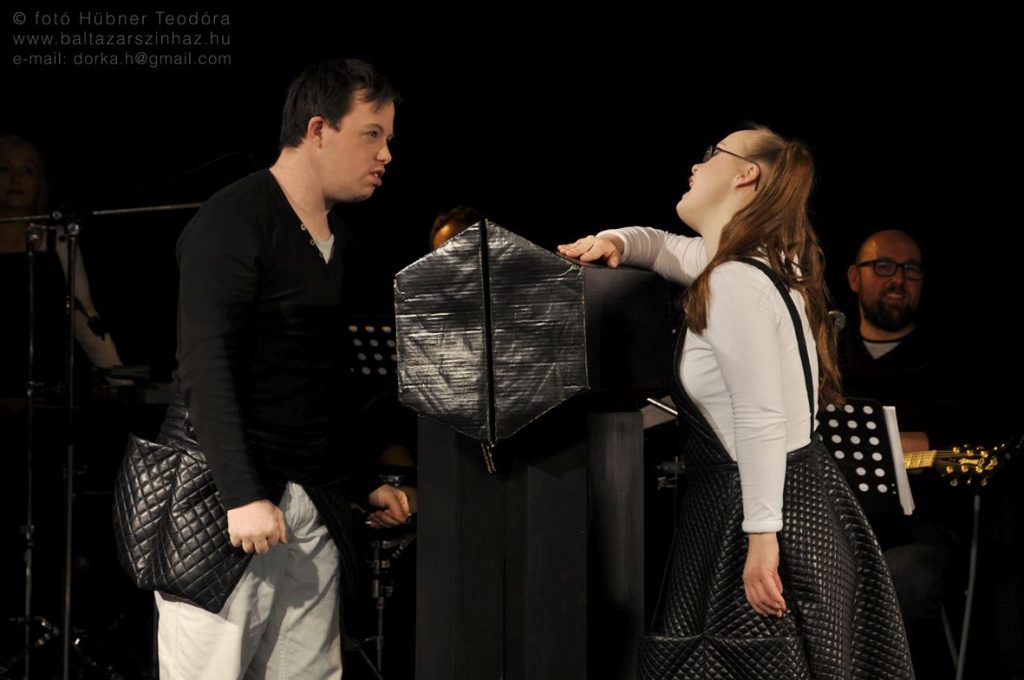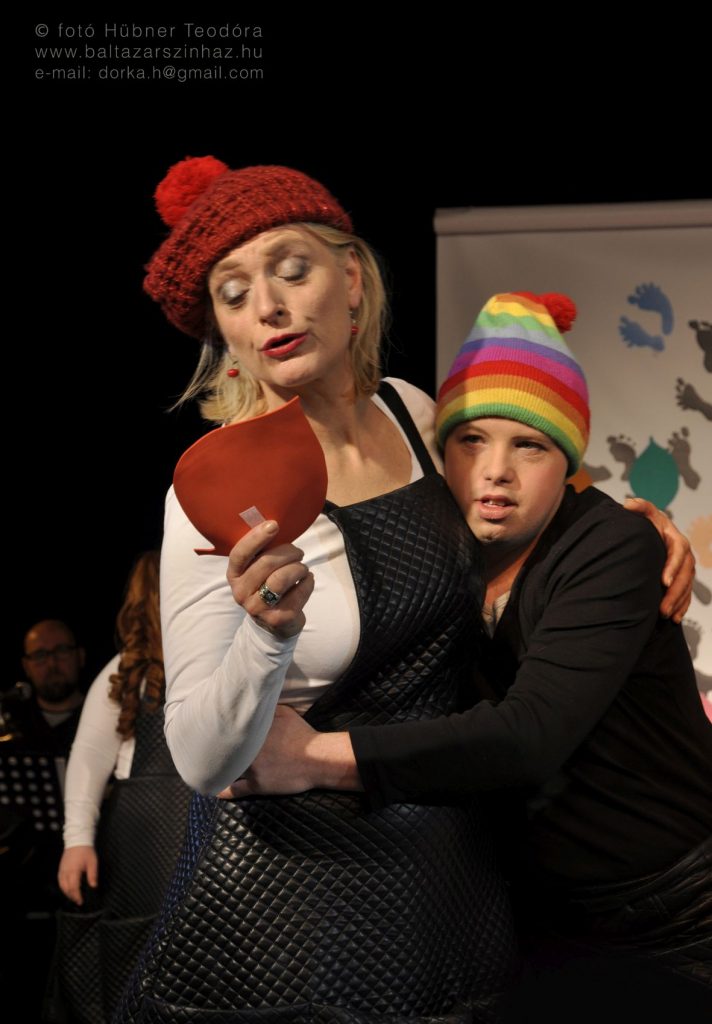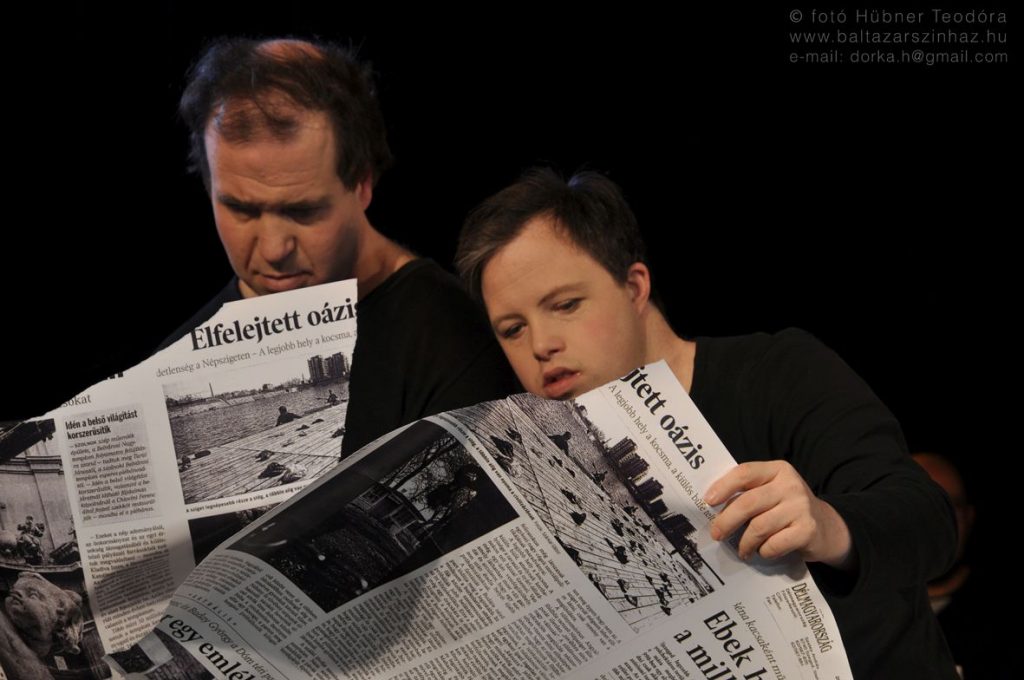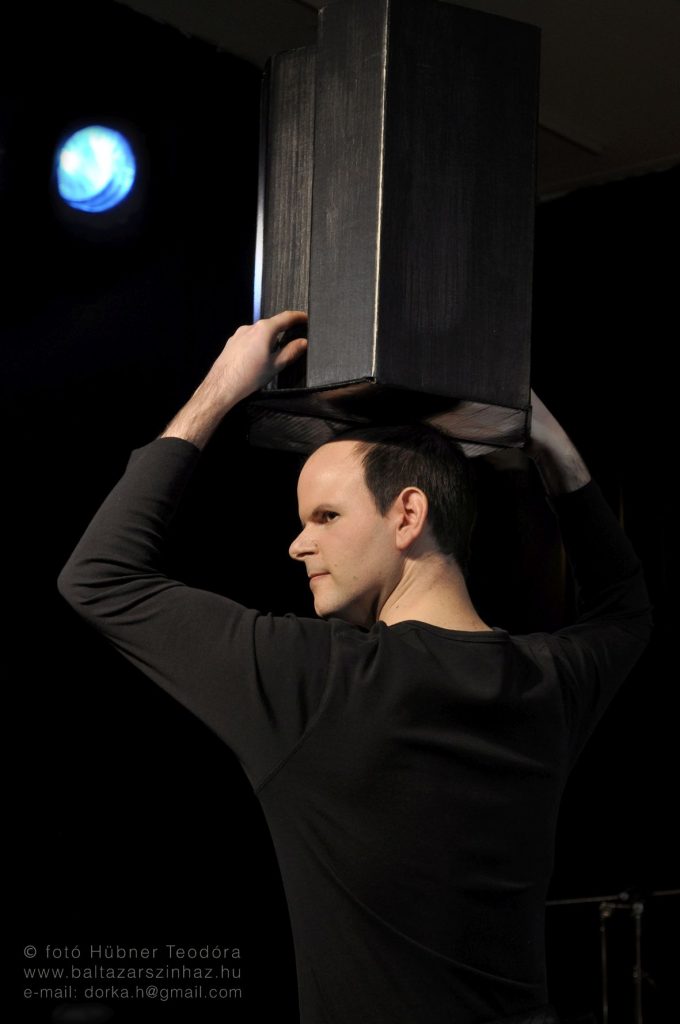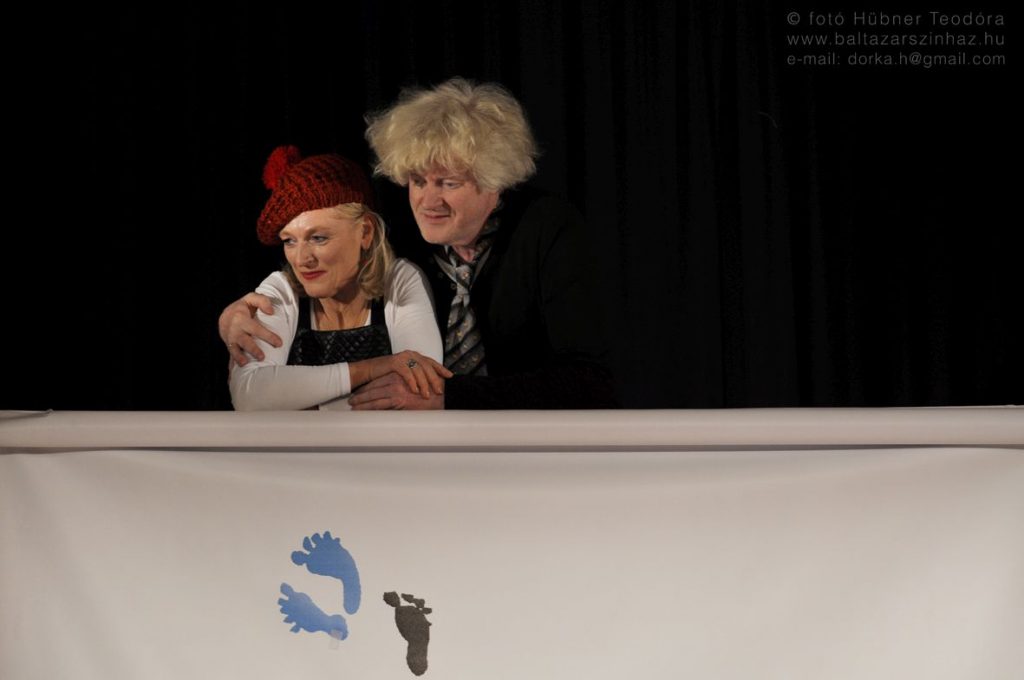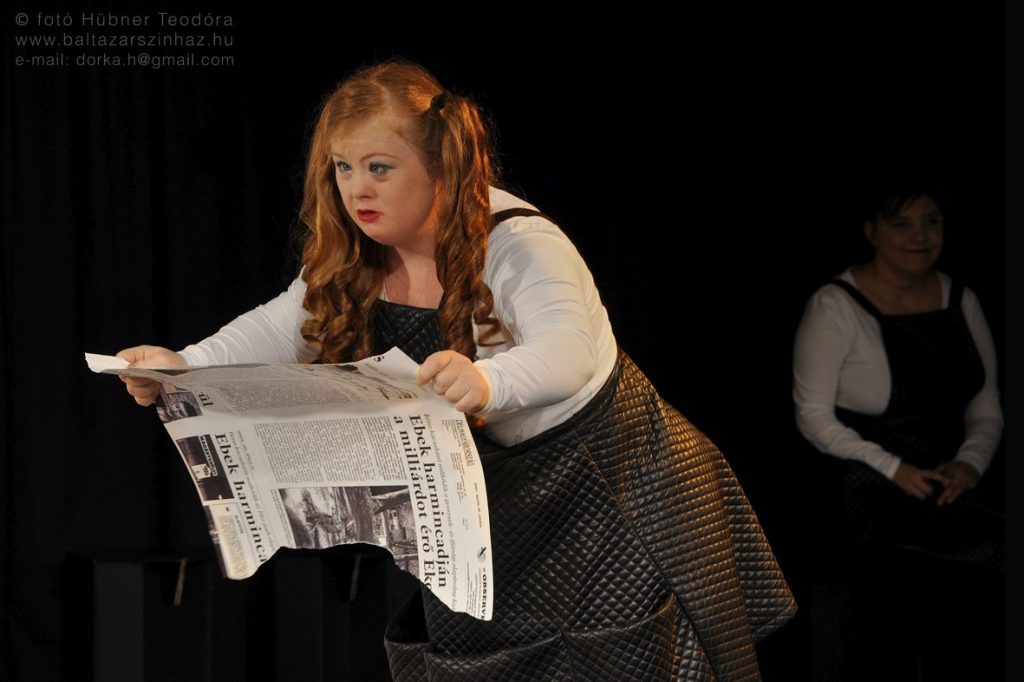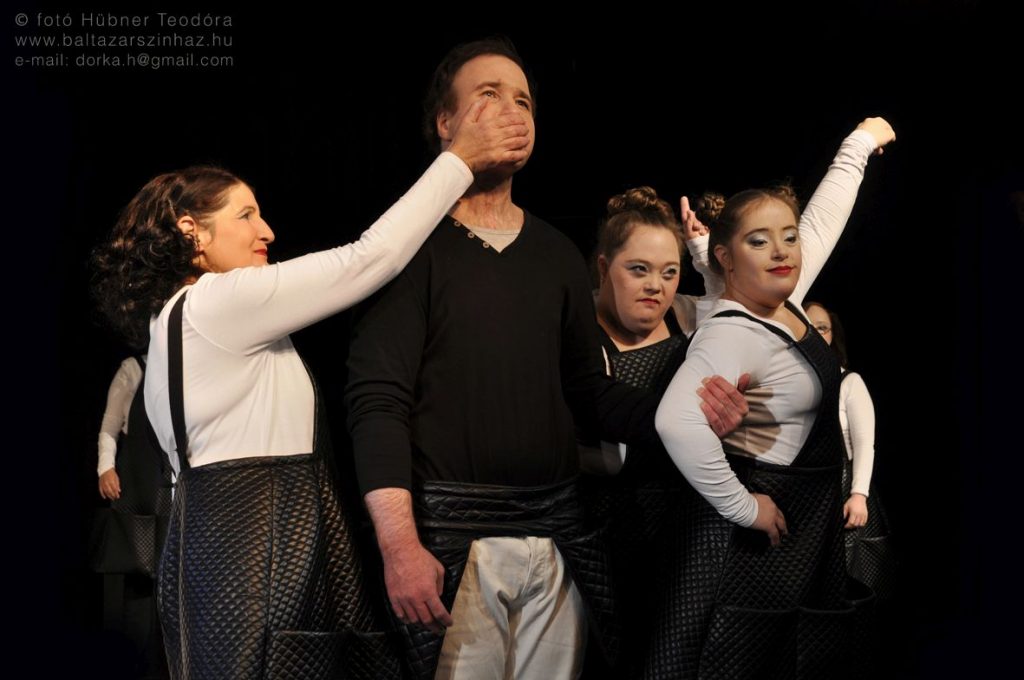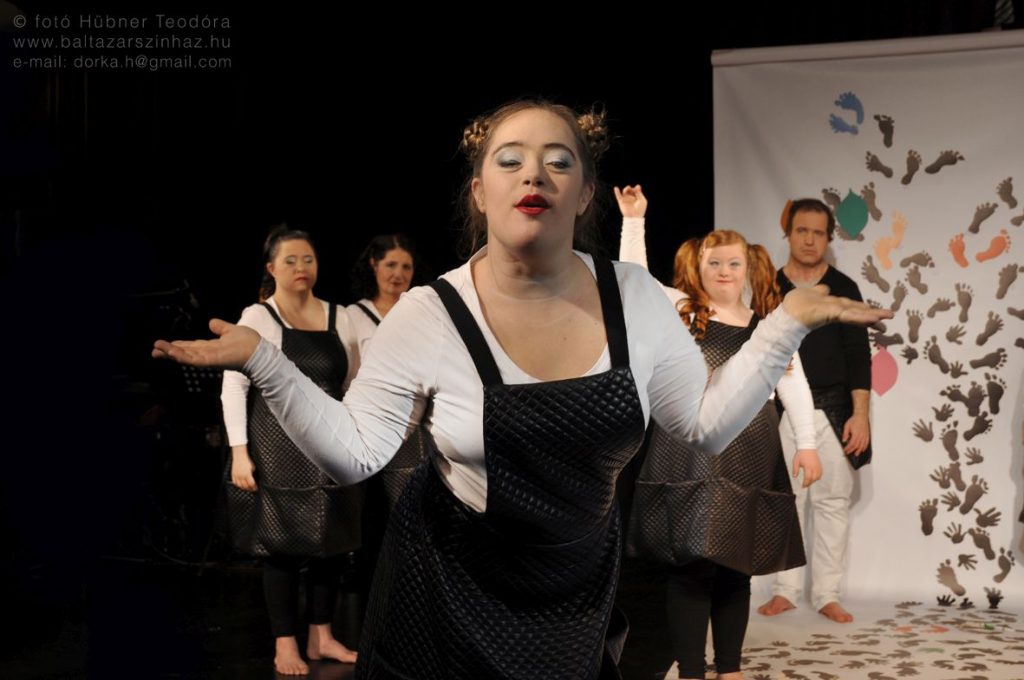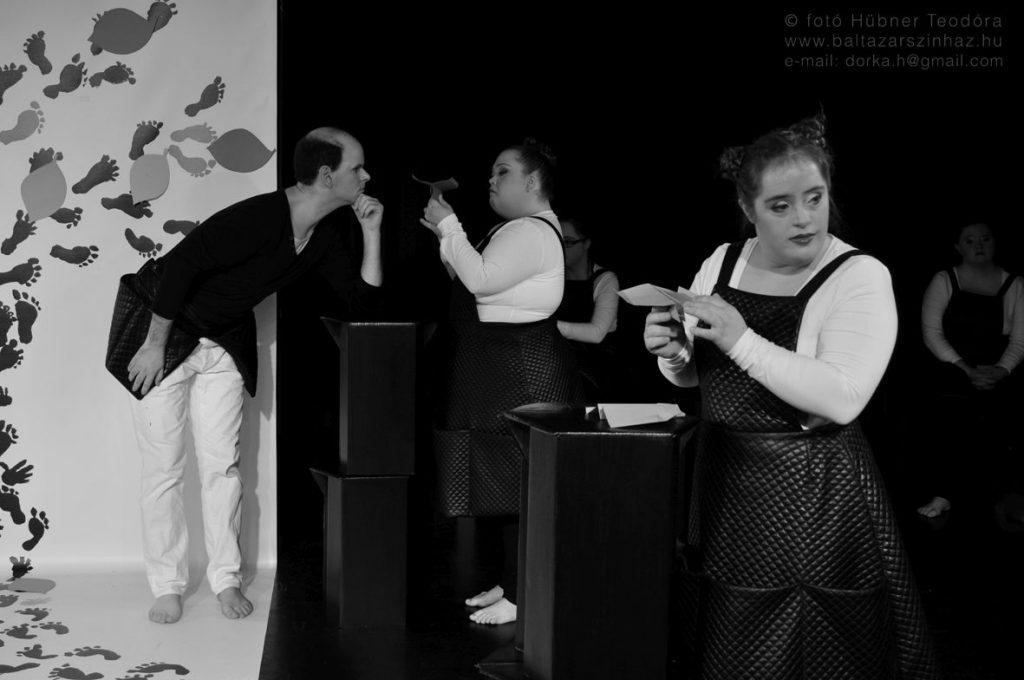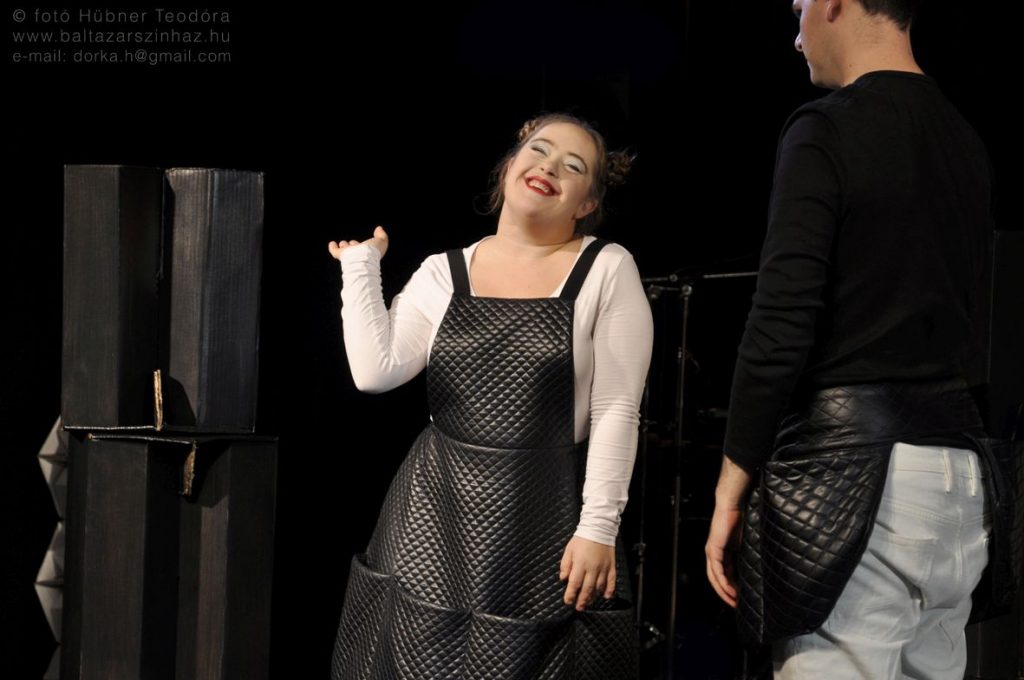(One-minute stories in several minutes, with music)
First performance: December 8, 2016, Baltazar House
What is the grotesque? – asks István Örkény, answering the question in his one-minute stories. If we stand with our legs apart, bend all the way forward, and look through the arch formed by our legs, the world will be turned upside down. Everything seems amusing from this point of view, even a funeral. The play adapts well-known one-minute stories such as A Bright and Distant Future, Honeymooners on Flypaper, We have a Choice, Even our Boldest Dreams can be Realised!, Fate or Budapest. Örkény’s letters and story-letters which he wrote to his wife and children are also brought to life. Zoltán Schneider’s live music connects the various parts. Baltazar Theatre’s actors join up with Péter Sziámi Müller and Kriszta Kováts to act it all. Dear Viewers, Please bend forward too, so that you can laugh or cry with us at what you see!
Baltazar Theatre has already worked with classics several times, in different ways – whether it only served as a story frame (Think of me with Pleasure – Romeo and Juliet), or was a complete adaptation (A Baltazar Night’s Dream – A Midsummer Night’s Dream). By adapting Örkény’s works – part of the set works at school – we once again prove that we are continuously trying to deepen our traditionally good relationship with literature teachers. Yet at the same time, the play does not only focus on students, as Örkény’s writings are not compulsory reading material first and foremost; rather, he creates scenes from the everyday life of the time and diagnoses its ills, all of which is suitable for older generations as well.
The play was created from István Örkény’s one-minute stories, plays and letters. His absurd humour comes to the fore in a particularly exciting way in the highly sensitive delivery of the Baltazar Company. We might get the feeling that his works were written quite recently: human stupidity and indifference are present in the life of every era. Örkény magnifies these, putting ordinary, everyday people in various situations. When we laugh at them, we laugh at ourselves, we see ourselves in them. The music, the prose, the rhythm, the movements and the visuals together complement the acting. The play holds up a distorted mirror to us – what’s more, the mirror is broken, and all we can do is re-assemble it from its fragments.

